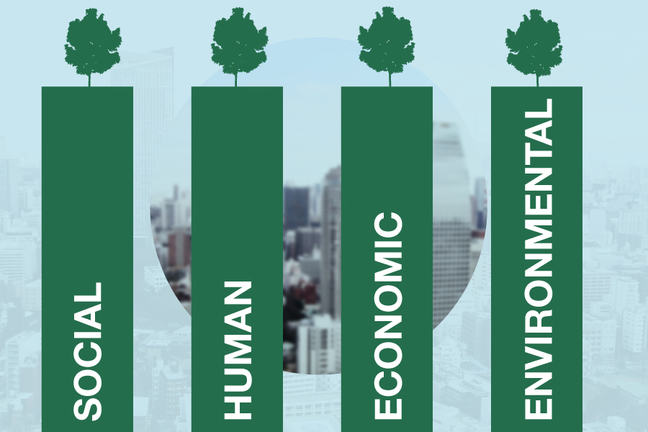You don’t need a green roof, a vertical garden or a green wall to live in a green building.
Climate change will not destroy the earth. The planet will go on for millions of years, long after human life has expired but climate change, however, can destroy the species of life on earth that cannot adapt fast enough to new and changing conditions.
This entire process of building design that reduces the harmful effects on our health and environment is known as green architecture or green design. Green architecture is a sustainable practice of green building design which is designed and constructed with keeping the environmental standards in mind.
Today, we find ourselves at a crossroad on making choices about architectural standards, building materials and new construction, along with the operation and maintenance of buildings, account for a considerable sum of the total greenhouse gas emissions.
Knowing this reality, architects are supposed to carry the responsibility of building properties without deteriorating the planet’s environmental structure or depleting its resources any further. Sustainably designed buildings aim to lessen the impact of greenhouse emissions on our environment through energy and resource efficiency.
Sustainability presents itself as a unique challenge in the field of architecture construction projects typically consume large amounts of materials, produce tons of waste, and often involve weighing the preservation of buildings that have historical significance against the desire for the development of newer, more modern designs.
Increasing CO2 emissions are believed to result in irreversible changes in the global climate and the global environment, the consequences of which are hard to predict, but which are believed to impose tremendous economic cost of mitigation and adaptation, if not catastrophic effects on the human future.
Green Homes illustrates the multiple environmental, economic and social benefits arising from a transition towards energy-efficient housing. It outlines the required institutional changes and provides some basic principles for successful policies.
For a world aiming towards a balanced and inclusive green economy for sustainable development, Green Homes is more relevant than ever today. In spite of the sustainability and affordability benefits of Green Houses, the progress made by Nigerians and the Nigerian government is so little compared to advanced nations where Green Houses and allied concepts are very popular.
The concept of Green Houses has become very significant just as the waves of green movement are sweeping across the world. Apart from benefits that such houses promise to the environment, they are cost-effective and would lead to a more sustainable economy.
Source: Legit.ng





